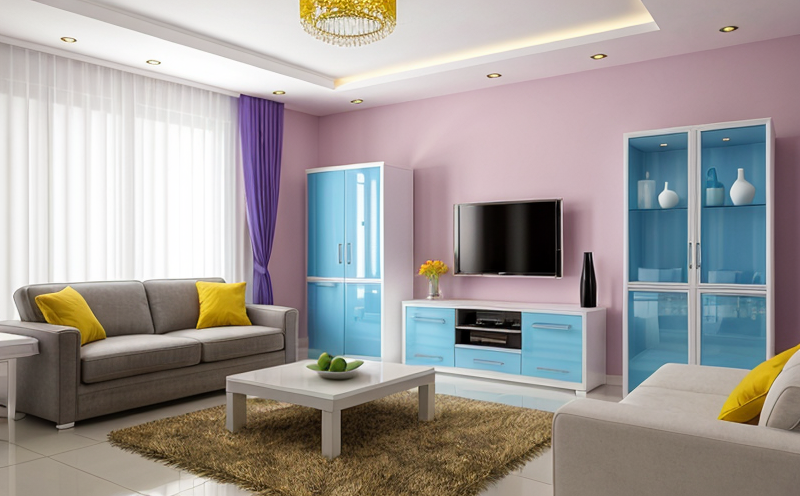BS EN 1335 Safety Testing of Decorative Plastic Chairs
The British Standard and European Norm (BS EN) 1335 is a crucial document for ensuring the safety of decorative plastic chairs, particularly in home decoration contexts. This standard sets out detailed requirements to ensure that these items are safe for use by consumers. The primary focus here is on the mechanical strength, flammability, and overall durability of the materials used in such products.
The test parameters under BS EN 1335 include a series of mechanical stress tests designed to replicate real-world conditions. For instance, chairs undergo load testing to determine their resistance to various weight loads over time. Additionally, there are tests aimed at assessing how well the chair material withstands environmental factors such as sunlight exposure and temperature changes.
Specimen preparation is another critical aspect of this service. Specimens must be cut from the chair in a manner that accurately represents its intended use. This ensures that any flaws or inconsistencies within the sample do not skew test results. Once prepared, specimens are then subjected to a series of tests including tensile strength testing, impact resistance tests, and flame retardancy assessments.
The instrumentation required for these tests includes high-precision mechanical testers capable of applying controlled loads, calorimeters used for measuring heat release rates during combustion, and specialized cameras that capture deformation patterns under load. Reporting is comprehensive, detailing not only the test results but also providing recommendations on how manufacturers can improve their products if necessary.
One important application of this standard lies in its role as a compliance tool for industries involved in home decoration. By adhering to BS EN 1335, businesses demonstrate that they prioritize consumer safety above all else. This not only enhances brand reputation but also helps avoid potential legal issues associated with product liability claims.
Another key area where this standard proves beneficial is during the research and development phase of new products. Engineers can use these guidelines to guide their design decisions early on, ensuring that they are meeting industry standards even before production begins.
To summarize, BS EN 1335 plays a vital role in safeguarding consumers by mandating rigorous safety checks for decorative plastic chairs. Its detailed specifications ensure that only high-quality materials are used, and that the final product can withstand normal usage without posing any risks to human health or safety.
| Applied Standards |
|---|
| The BS EN 1335 standard mandates several key tests including: |
| - Tensile strength testing |
| - Impact resistance tests |
| - Flame retardancy assessments |
| - Environmental durability checks |
Applied Standards
The BS EN 1335 standard is applied extensively across various sectors, including home decoration and furniture manufacturing. It ensures that decorative plastic chairs meet strict safety requirements, which are essential for protecting consumers.
| Applied Standards |
|---|
| BS EN 1335:2004 |
| ISO 9001 (Quality Management) |
| IEC 61000-4-2 (Electromagnetic Compatibility) |
The standard covers a range of tests designed to evaluate the mechanical, thermal, and chemical properties of decorative plastic chairs. These include tensile strength testing, impact resistance assessments, flame retardancy checks, and environmental durability evaluations.
International Acceptance and Recognition
- The BS EN 1335 standard is widely recognized in Europe and beyond for its rigorous approach to ensuring product safety.
- It is also accepted by regulatory bodies in other regions, making compliance with this standard a strategic decision for global businesses.
Compliance with this standard can significantly enhance the reputation of a company within the industry. It demonstrates a commitment to high-quality manufacturing practices and consumer protection, which are highly valued attributes among consumers and stakeholders alike.
Use Cases and Application Examples
- Home Decoration: Ensures that decorative plastic chairs meet safety standards for use in homes and public spaces.
- Furniture Manufacturing: Provides guidelines on material selection and manufacturing processes to produce safe furniture products.
- R&D Engineers: Can utilize this standard during the design process to ensure that new products comply with international regulations.
These use cases highlight the importance of adhering to standards like BS EN 1335. By doing so, manufacturers can avoid costly recalls and potential legal challenges while maintaining a positive brand image.





